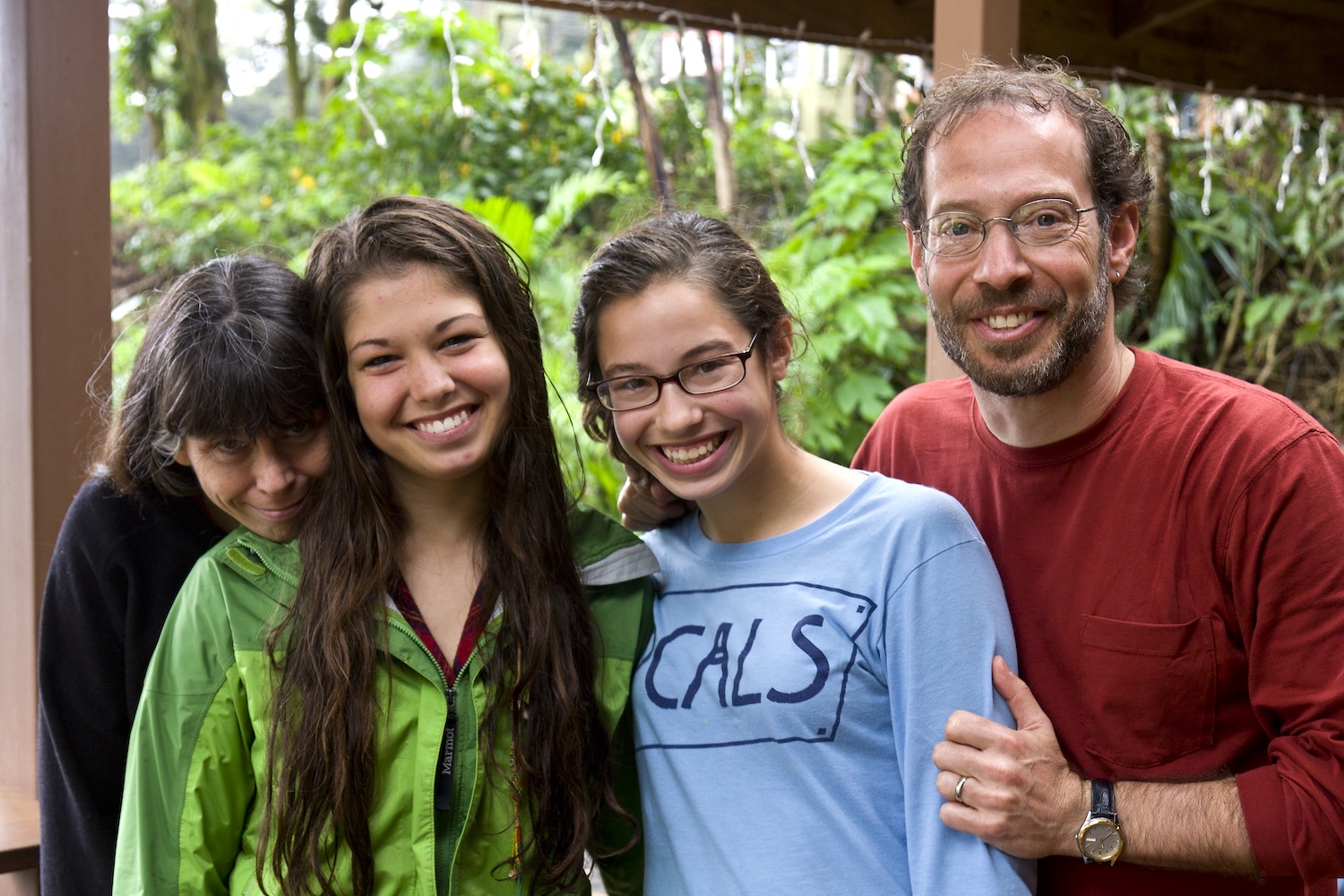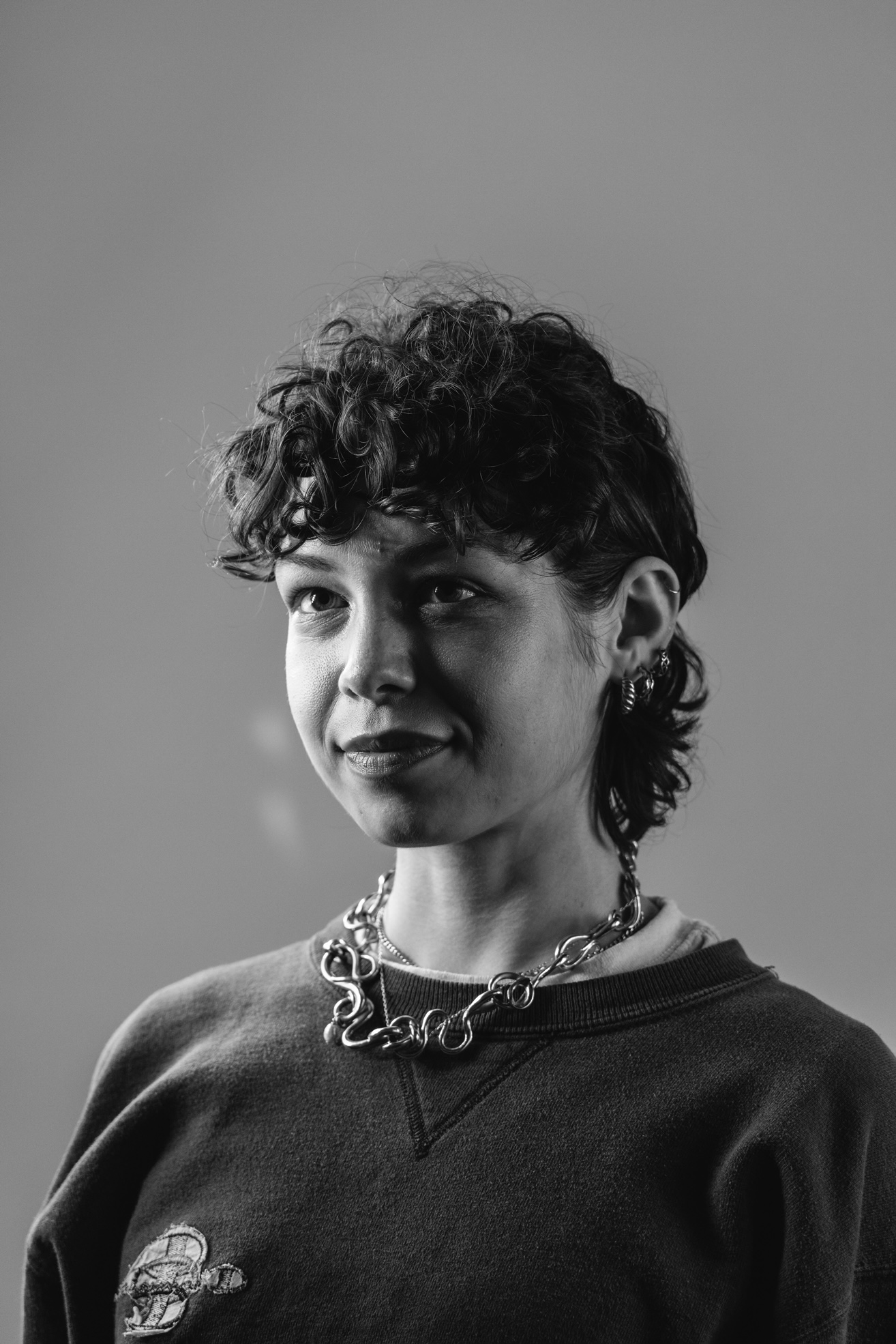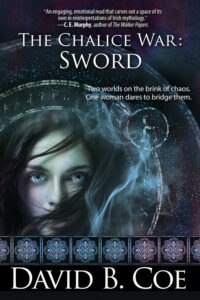Many years ago — more than a decade, which boggles my mind just a little — Nancy, Erin, and I went down to Monteverde, Costa Rica, to visit Alex, who was taking the first semester of her junior year in high school at the Cloud Forest School (offering us an early glimpse of the adventuresome nature and wanderlust that would define her too-brief life; she would later spend half of her university sophomore year in Berlin, and all of her junior year in Madrid.)

Our visit, which coincided with the (U.S.) Thanksgiving holiday, was fun and fascinating, despite near constant rain. We saw a ton of cool birds, ate amazing local foods, went on gorgeous hikes, and, of course, had great family time. We also spent one memorable morning doing a zip line tour of the rain forest. (Yes, I am slowly but surely closing in on today’s topic . . . .) It was a damp, warm day. Rain showers drifted through the area, but the air was still. The zip line course zig-zagged through an extensive, unbroken tract of rain forest.
The longest leg of the zip course was a full kilometer long, and when my turn came to take on that segment of the journey, I’ll admit to being just a little intimidated. That didn’t last long. I climbed into the harness, remembered the lessons we’d been given for slowing and braking, and allowed our guides to launch me.
 Within moments, I was gliding over lush rain forest, surrounded by a ghostly mist, utterly alone, and, it seemed, in a cocoon of sensation — birds called from the green below me, the air was redolent with the sweet scents of rain and earth and forest decay, mist cooled my face, the green of the damp foliage was so brilliant as to appear unreal. Time fell away. Yes, I was moving. But to this day, I couldn’t tell you how long it took me to float through that segment of the course. It could have been mere seconds. It could have been hours. It didn’t matter. For the purposes of that experience, time meant nothing to me. I had escaped the tyranny of clocks and calendars.
Within moments, I was gliding over lush rain forest, surrounded by a ghostly mist, utterly alone, and, it seemed, in a cocoon of sensation — birds called from the green below me, the air was redolent with the sweet scents of rain and earth and forest decay, mist cooled my face, the green of the damp foliage was so brilliant as to appear unreal. Time fell away. Yes, I was moving. But to this day, I couldn’t tell you how long it took me to float through that segment of the course. It could have been mere seconds. It could have been hours. It didn’t matter. For the purposes of that experience, time meant nothing to me. I had escaped the tyranny of clocks and calendars.
Yes, the tyranny of clocks and calendars.
Human existence has always been governed by the passage of time — the cycle of days, the changing of the seasons, the aging of our bodies. But clocks are relatively new to the human experience and the demand that we live our lives according to timetables, schedules, and deadlines is newer still. Leisure, I would argue, is our attempt to step away from segmented time, whether we are engaging in a favorite hobby, or traveling to some far off land for a vacation. People speak often of “losing track of time.” This can be offered as an excuse, a way to explain a deadline missed or a late arrival to an important meeting. But it can often also be said in a happier context. “I was so absorbed in what I was doing, I totally lost track of the time.” It’s a glorious feeling, one we seek to replicate whenever we can.
Perhaps I am more conscious now of the preciousness of time, the need to enjoy our hours, our days, our years. They are treasures, not to be frittered away carelessly, not to be spent only on things as trivial as work and Zoom calls and chores. Because they can be taken from us without warning. The Beatles had it wrong, I am sorry to say. Money can, in fact, buy us love. But it can’t buy us time.
The four of us used to go to the beach for a week each summer — the North Carolina coast near Wilmington. We would arrive on Saturday afternoon, do a massive grocery shop, claim our rooms in the house (often a fraught process for the girls . . . .), and then go our separate ways until dinner time. I would always head down to the shore and sit watching the surf and birds and the play of golden late-afternoon light on the water. And I would feel the tension draining from my body, being wicked away by the sand. The sweep hand on my watch would lose its power over me, to be replaced by the advance and retreat of the waves. And I would revel in the anticipation of the glorious week to come, during which our days would be measured solely by the ebb and flow of tides and the arc of the sun.
I get this a bit with my daily morning walks. I walk roughly the same track each day, and I know how long it takes me. Even if I stop to look at the occasional hawk or thrush, the duration of the walk doesn’t change very much. And so, I don’t worry about the time. For those few miles, my only task is to walk, and to let my mind go where it will. Some days I think about my daughters, others find me working through plot lines, and still others I spend obsessing over politics or some issue with a friend or family member. And every so often, my mind wanders in ways I can’t anticipate and can barely track.
My point, I suppose, is that we need to escape those temporal tyrants I mentioned earlier. Even if we can’t afford to go on a vacation — because of time constraints or financial ones — and even if we have to measure the breaks we take in minutes or, if we’re fortunate, hours, we can still set aside a small portion of our day to step away from datebooks and timestamps. It’s worth the effort. Just remember to put your Apple watch and cell phone somewhere you can’t see or hear them.
Have a great week, or enjoy a period of time of your own choosing . . . .









 Today is the 22nd of January. It’s been exactly three months since our older daughter passed away.
Today is the 22nd of January. It’s been exactly three months since our older daughter passed away. As I say, if you know me, you probably don’t find this surprising. I have spoken and written about my love of the Grateful Dead, my experiences shivering outside on cold nights, in the dark of Providence, Rhode Island winters, waiting at the Providence Civic Center for Dead tickets to go on sale. People don’t do that unless they have already done damage to their prefrontal cortex. I could tell additional stories. It is possible that I (and select others) was (were) high during at least one musical performance that we gave while in college. I might remember playing Cat Stevens’s hit “Wild World” and literally watching my digital dexterity degrade over the course of the song.
As I say, if you know me, you probably don’t find this surprising. I have spoken and written about my love of the Grateful Dead, my experiences shivering outside on cold nights, in the dark of Providence, Rhode Island winters, waiting at the Providence Civic Center for Dead tickets to go on sale. People don’t do that unless they have already done damage to their prefrontal cortex. I could tell additional stories. It is possible that I (and select others) was (were) high during at least one musical performance that we gave while in college. I might remember playing Cat Stevens’s hit “Wild World” and literally watching my digital dexterity degrade over the course of the song. In the last year, I have written two pieces of original short fiction. That’s it. I haven’t written a novel since I finished The Chalice War: Sword, late in 2022. I have recently started work on a tie-in project (I can’t really say more than that, right now), a novel. It is coming slowly, and because I am essentially playing in someone else’s world, the emotions I’ll be mining are somewhat removed from my own. I spent the first half of last year doing a bunch of editing, for myself and for others, figuring that when those projects were through, I would dive into a new book of my own.
In the last year, I have written two pieces of original short fiction. That’s it. I haven’t written a novel since I finished The Chalice War: Sword, late in 2022. I have recently started work on a tie-in project (I can’t really say more than that, right now), a novel. It is coming slowly, and because I am essentially playing in someone else’s world, the emotions I’ll be mining are somewhat removed from my own. I spent the first half of last year doing a bunch of editing, for myself and for others, figuring that when those projects were through, I would dive into a new book of my own.